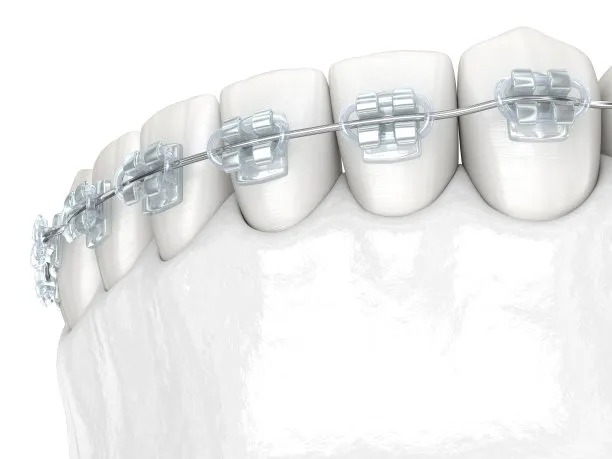Exploring the Link Between Periodontal Disease and Overall Health in Adults for Better Preventive Strategies
Summary: Periodontal disease is commonly recognized as a localized oral health issue, but emerging evidence suggests that it may also have significant implications for overall health in adults. This article explores the connections between periodontal disease and systemic health, focusing on four key areas: the impact on cardiovascular health, the link to diabetes management, the influence on respiratory conditions, and the importance of preventive strategies. Understanding these associations can elevate the role of dental care in comprehensive health strategies, ultimately fostering better health outcomes across populations. By adopting well-informed preventive measures, adults can mitigate risks and enhance their quality of life.
1. Impact on Cardiovascular Health

Research has increasingly indicated a correlation between periodontal disease and cardiovascular health. Bacteria from periodontal infections can enter the bloodstream, potentially leading to heart-related issues. This systemic inflammation may contribute to the development of atherosclerosis, which is the thickening or hardening of arterial walls due to plaque buildup. Consequently, individuals with periodontal disease are at a heightened risk of heart attacks and strokes.
Moreover, inflammation plays a crucial role in both periodontal disease and cardiovascular conditions. Chronic inflammation stemming from gum infections may worsen endothelial function, impairing blood vessel health. As a preventive measure, maintaining good oral hygiene can significantly reduce the burden of periodontal disease and enhance cardiovascular health.
Comprehensive dental and medical check-ups can facilitate early detection of periodontal disease, thereby allowing for timely interventions that may improve overall cardiovascular outcomes. Collaborative efforts among healthcare providers can promote a multidisciplinary approach to patient care.
2. Link to Diabetes Management
The interrelationship between periodontal disease and diabetes is particularly noteworthy. Diabetes can exacerbate periodontal disease due to compromised immune response and impaired wound healing, resulting in more severe gum issues. Conversely, periodontal disease can make it challenging for diabetic patients to control their blood sugar levels, creating a vicious cycle.
Effective management of periodontal health may lead to better glycemic control in diabetic individuals. Regular dental appointments for cleanings and check-ups can help identify and address gum disease at early stages, reducing the risk of complications associated with diabetes. Additionally, patient education about the importance of oral health can improve overall diabetes management.
Thus, the integration of dental care into diabetes care programs can provide a holistic approach that addresses both oral and systemic health. Research supports the idea that better periodontal health can correspond to improved metabolic outcomes in individuals with diabetes.
3. Influence on Respiratory Conditions
Emerging studies reveal a significant connection between periodontal health and respiratory conditions. Poor oral hygiene can lead to an accumulation of bacteria that may be inhaled into the lungs, potentially leading to respiratory issues such as pneumonia and chronic obstructive pulmonary disease (COPD). These conditions are particularly concerning for vulnerable populations, including the elderly and those with pre-existing health conditions.
Maintaining good oral health can thus play a critical role in preventing respiratory diseases. For instance, nursing home residents who practice oral hygiene may reduce their risk of pneumonia, an illness that can be severe and often fatal for older adults. Dental professionals should work closely with caregivers in such settings to promote effective oral hygiene practices.
Understanding the interplay between oral health and respiratory conditions paves the way for targeted preventive measures that can enhance patient outcomes. Public health campaigns emphasizing the importance of oral hygiene can significantly impact overall respiratory health.
4. Importance of Preventive Strategies
Recognizing the multifaceted connections between periodontal disease and overall health underscores the necessity for effective preventive strategies. Regular dental check-ups and cleanings are essential for maintaining good oral health and preventing the onset of periodontal disease. Furthermore, education around proper oral hygiene practices can empower individuals to take charge of their dental health.
Healthcare providers should foster interdisciplinary collaboration, encouraging communication between dental professionals and other healthcare practitioners to ensure comprehensive patient care. By doing so, patients can receive coordinated services that address both oral and systemic health needs.
Investment in preventive education, community outreach, and accessible dental care services can lead to improved health outcomes for adults. The integration of dental health into broader healthcare initiatives is crucial in achieving overall wellness.
Summary:
The exploration of the link between periodontal disease and overall health highlights the critical need for preventive strategies to improve health outcomes. Understanding the connections between oral health and conditions such as cardiovascular disease, diabetes, and respiratory illnesses informs more effective healthcare approaches.
Implementing comprehensive dental care and patient education can foster better overall health, ultimately enhancing quality of life. Effective preventive measures form a cornerstone of adult health strategies that should not be overlooked.
This article is compiled by Vickong Dental and the content is for reference only



